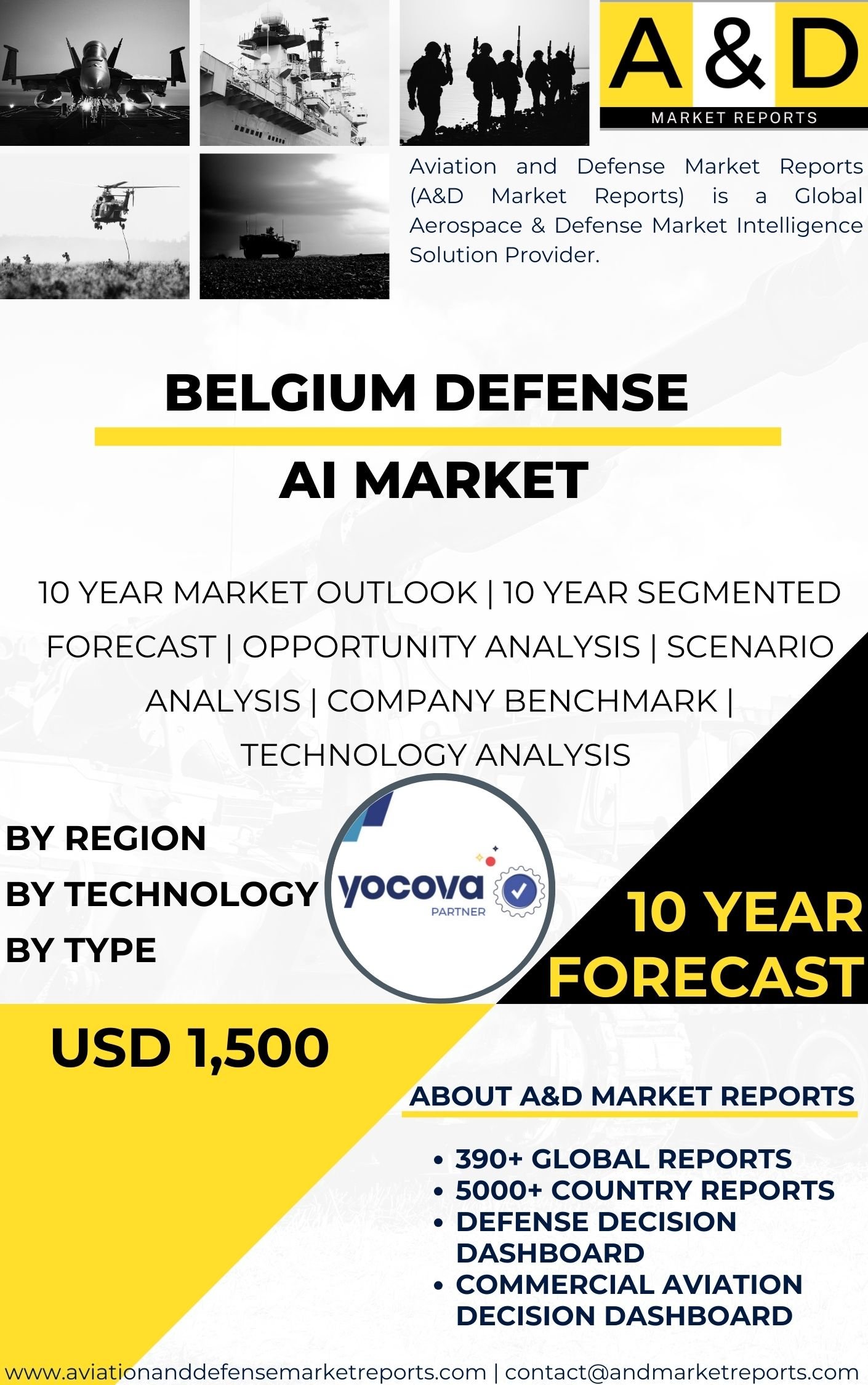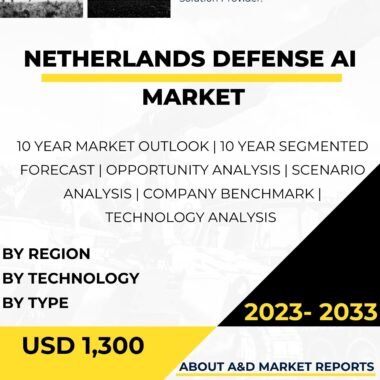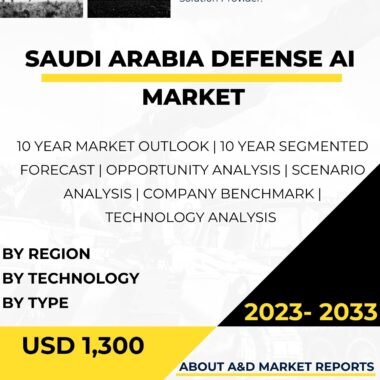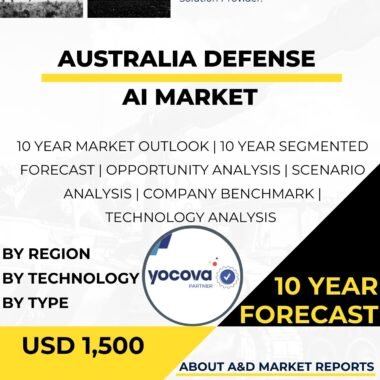Description
The Belgium defense AI (Artificial Intelligence) market is a rapidly growing segment within the country’s defense industry. AI technologies offer immense potential in enhancing military capabilities, improving decision-making processes, and streamlining operations. Belgium recognizes the importance of AI in defense applications and aims to leverage its benefits to strengthen its defense forces.
The primary driver for the Belgium defense AI market is the need for advanced analytics, autonomous systems, and intelligent decision support in military operations. AI enables the processing and analysis of vast amounts of data, enhancing situational awareness, facilitating predictive modeling, and supporting mission planning. These capabilities allow defense forces to make informed decisions quickly, adapt to dynamic environments, and gain an operational edge.
Belgium’s domestic defense industry plays a crucial role in the development and integration of AI technologies in defense applications. Belgian companies, such as Thales Belgium and FN Herstal, have expertise in defense technologies and contribute to the country’s defense AI capabilities. These domestic capabilities foster innovation, create job opportunities, and contribute to the economic growth of the Belgium defense AI market.
Collaborations with international partners and suppliers are also significant for the Belgium defense AI market. Belgium often engages in partnerships with defense companies from NATO member states and other allied nations to access advanced AI technologies, benefit from joint development programs, and ensure interoperability with allied forces. These collaborations enable Belgium to leverage global advancements in defense AI and enhance its military capabilities.
Furthermore, Belgium’s participation in multinational defense initiatives influences the defense AI market. Collaboration within NATO and other international defense cooperation programs fosters interoperability, joint training exercises, and the exchange of best practices. This cooperation ensures compatibility and enhances operational effectiveness when utilizing AI technologies in joint military operations with allied forces.
The Belgium defense AI market faces challenges such as data integration, algorithm development, and ethical considerations. Effective utilization of AI technologies relies on the availability of quality data from various sensors, platforms, and sources. Belgium’s defense industry must overcome the challenge of integrating disparate data sets to derive actionable insights and enable AI-based decision-making.
Algorithm development is crucial for the successful implementation of AI in defense applications. Belgium’s defense industry must invest in research and development efforts to develop sophisticated algorithms that can process complex data, optimize resource allocation, and support intelligent automation. Continuous innovation is necessary to stay at the forefront of AI technology advancements.
Ethical considerations surrounding the use of AI in defense are important. Belgium’s defense forces must ensure that AI-based systems adhere to legal and moral standards, including the protection of privacy and compliance with international humanitarian law. Transparency, accountability, and human oversight should be integral components of AI-enabled defense systems to maintain trust and avoid unintended consequences.
In conclusion, the Belgium defense AI market is a rapidly growing segment within the country’s defense industry. AI technologies offer significant potential in enhancing military capabilities, improving decision-making processes, and streamlining operations. Domestic capabilities, collaborations with international partners, and Belgium’s participation in international defense initiatives drive the growth and development of the defense AI market. As defense requirements evolve and technological advancements continue, the demand for advanced and ethically responsible AI technologies in defense applications is expected to increase, fostering innovation, collaboration, and economic growth within the sector.




